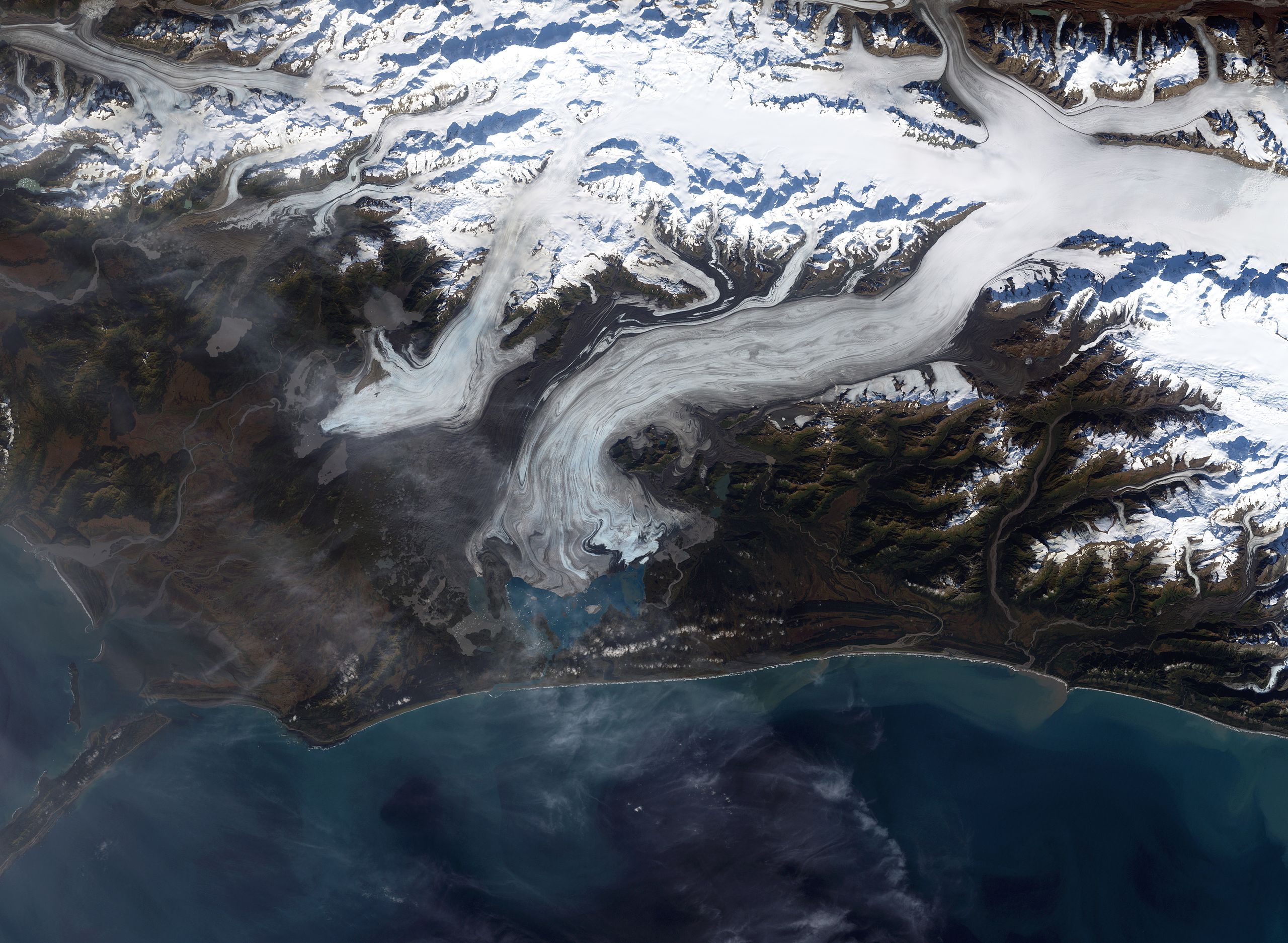Ice sheet retreat triggers volcanic eruption and ocean hypoxia
Most complex organisms on Earth need to breathe oxygen to stay alive. As global warming continues, the amount of oxygen dissolved in ocean waters is expected to decline (i.e. deoxygenation). This will have disastrous consequence on the marine ecosystem and the human communities that depend on its service.
This threat is particularly palpable in parts of the ocean where the natural oxygen background is already very low, for example, the vast oxygen minimum zone in the North Pacific. In recent years, reports of the occurrences of oxygen depleted ocean waters, also known as “dead zones”, have risen considerably. There is thus a sense of urgency to understand what processes can trigger ocean deoxygenation. To predict the future changes of ocean oxygenation is challenging, because modern observational records have only existed for a few decades, and the short term variability in the modern records may mask the long term trend. Oceanographers thus study ocean deoxygenation events that happened in the past, which allows us to produce much longer records of ocean oxygenation to understand the mechanistic control and ecological impact.
Among the most studied such events are those that happened in the North Pacific during the last deglaciation 19,000 to 9,000 years ago, when the Earth came out of the last ice age and the global average temperature increased ~7 degree Celsius. The spatial distribution of these events largely overlaps with the modern ocean minimum zone in the North Pacific, suggesting that these waters were even more depleted in oxygen than today.
The trigger of these deoxygenation events have long been debated, especially regarding how they were related to the coeval warming of the ocean. Ocean warming can reduce the solubility of oxygen in seawater, and increase the oxygen consumption by marine organisms, but those are not enough to explain the level of deoxygenation observed. Ocean warming may also affect ocean circulation and marine productivity and thus oxygenation, but the complexity of the earth systems involved has thus far prevented a clear understanding of what triggered these deoxygenation events.

In this study, we investigate what roles the cryosphere and the solid earth systems play in ocean deoxygenation, a perspective hither to unexplored by previous research. We are motivated by the fact that the North Pacific was neighbour to a large continental ice sheet covering much of the Pacific Northwest extending from Alaska to Washington State, known as the Cordilleran Ice Sheet during the last ice age. At the same time the North Pacific margin hosts part of the “Ring of Fire” collection of volcanoes surrounding the Pacific. Ice sheet retreat may induce volcanic eruptions. If so we would expect increasing volcanic ash fallout in the ocean, fertilizing the surface ocean that are often nutrient starved. The increase of organic matter export can then consume oxygen in the ocean at depths.
To test this hypothesis, we probe marine sediments collected at two sites from the Southern Alaska margin by geochemical sensing. We find an increase in volcanic ash abundance in these sediments that can be traced back to volcanoes from the nearby Aleutian Islands and Wrangell mountains in Alaska, which are part of the “Ring of Fire”. Interesting, volcanic ash started to increase concurrently with the initiation of the deoxygenation recorded by these sediments. And both happened soon after the Cordilleran Ice Sheet started to retreat under the influence of warming related to changes in Earth’s orbit. These observations show that glacial retreat indeed drove explosive volcanism, which in turn fuelled ocean productivity that triggered ocean deoxygenation.
Most of the Cordilleran Ice Sheet has long gone, only a remnant is left in Alaska including the Bering Glacier. The remaining glaciers are melting at accelerating pace, and the tight coupling to the solid earth system has already manifested in an increase of earthquake frequency in this region. Whether further glacial retreat will induce volcanic eruption is unknown, but maybe a cause of concern given the evidence from the past. Since the ocean today is already under stress due to warming induced deoxygenation, further perturbation linked to glacial retreat or volcanic eruptions may exacerbate the situation in the future.
Reference
Du, J., Mix, A.C., Haley, B.A. et al. Volcanic trigger of ocean deoxygenation during Cordilleran ice sheet retreat. Nature 611, 74–80 (2022). external page https://doi.org/10.1038/s41586-022-05267-y